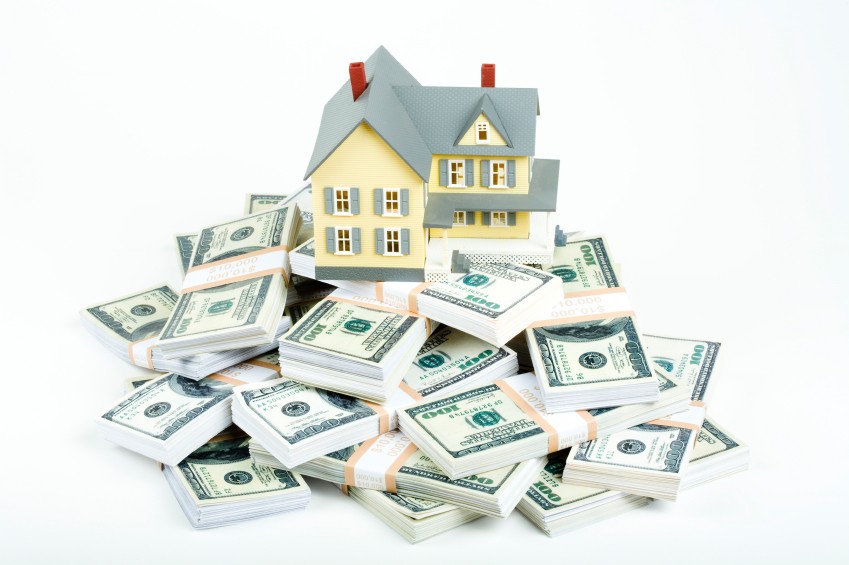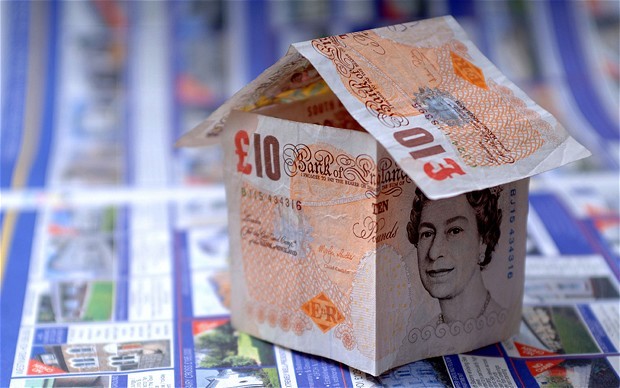Buying a house with cash or with a mortgage
Post on: 18 Апрель, 2015 No Comment

Should I be buying a house with cash or taking out a mortgage?
The question came from an American reader (and hence the figures are shown in dollars). However, it is equally applicable for any country and any currency. His exact question read:
“Im 29 years old, single, with $245k sitting in an online savings account, earning a measly 0.95% interest. I make roughly $70k/yr and my credit score is 819. Im looking to purchase my first home, which will cost around $220k.
Im tempted to buy the house outright with cash and start building my savings account back up, which I feel like I could do rather quickly with no rent/mortgage to worry about (aside from HOA, insurance, property tax, maintenance, etc. which would still be dramatically less than what Im currently paying in rent).
Any advice for/against buying a house with cash in my situation would be greatly appreciated. Thank you for your time.”
The answers on reddit
I find this question, and the general topic of buying a house with cash or mortgage, very interesting, mainly due to the wide array of answers provided in the comments. The responses are generally split. However, for me, this is a maths problem and hence there is a definitive answer. Some of the answers provided on Reddit included:
- “Pay for it in cash. Don’t try to beat some interest rate because that’s just a gamble. Just do the smart thing and pay for things in cash. Your financial situation is pretty amazing, especially for your age. Youll be solid either way though.” “You cant always just take the conservative way out. Put down 20% and toss the rest in a conservative mutual fund.” “Buy the house. You can still follow the other advice here on investments when you build your savings back up. At your age you can still save handsomely for retirement or just about anything else.” “I bought mine with cash because of the tremendous peace of mind it brought. Just knowing that you cant ever lose the house (for the most part), is an amazing feeling.”
Buying a house in cash or a mortgage Its a maths question
As I say, these answers are not looking at the problem from a cold hard mathematical perspective. If we do, I would argue that buying a house with a mortgage is currently the most preferable option.
Note that the person asking the question is from the US and hence my reply is focused on the US and will use historical figures from US markets, discussion of Roth and 401ks etc. However, the alternatives in the UK are about the same (market returns are similar, a Roth is the equivalent of an ISA and a 401k is a tax-free retirement account).
Personally, I would take the mortgage on a 70-80% LTV, given that the reader has consistent future income. Then I would dollar average my investments into the market in a tax efficient manner (matched 401k, Roth, etc) over a period of a few years (you will need a few years with annual limits on tax wrapped accounts).
The reader will benefit from 4 key things by doing this:
1) Inflation: if you take out a $175k mortgage, it is the equivalent of 2.5 times your annual salary (annual salary of $70k). If you take out a 30 year mortgage, and assume that your salary increases only with inflation (usually it will increase more as you move through your career), in 30 years time your salary will be $182k. However, when you repay your mortgage, you still only have to repay $175k. It will therefore cost less than 1 times your annual salary.
2) Market returns: The return on the S&P 500 over the past 50 years is 11.3% per year. This greatly exceeds current mortgage rates of around 4.25% per year. Therefore, you could earn a significantly greater return from investing in the market than the interest you will pay on the mortgage.
3) Leveraging: According to the National Association of Realtors. the price of US existing homes increased by 5.4% annually from 1968 to 2009. If you therefore assume capital gains on your property of 5.4% per year (itll probably be more than that), your $220k house would be worth $1,066k after 30 years. If you pay with cash, your ROI on your cash is 5.4% per year. However, if you take out a $175k mortgage, your ROI on your $45k investment (down payment) will be the equivalent of 9.4% per year.
4) Taxes: At the highest level, the readers $70K income per year makes him a high marginal tax rate payer. With tax benefits on mortgage interest in the US, your 4.25% would effectively come down to around 3%.
To conclude on the figures, if you buy a $220k house in cash, your final pot will be the value of your house after 30 years which, at 5.4% capital growth, will be $1,066k. If you buy with a 30 year 4.25% fixed mortgage (assuming interest only and the interest is paid out of your investments each year), your final pot (house value less mortgage repayments (tax adjusted) plus market investments) in 30 years’ time would be $3,852k.
Buy in cash final pot: $1,066k.
Buy with mortgage final pot: $3,852k.
Breakeven analysis
This section was not in the original article, but was inspired by the comment and reply by Tom G below. Check it out in the comments section below.
Generally, your choice between cash and mortgages comes down to your risk tolerance. People tend to say:
I would rather have a fixed rate of 8% (effectively earned by paying down the mortgage) than a variable return rate of 10%.
However, before you reach such arbitrary conclusions, I think it is very important to look at the break-even analysis and the actual figures in some examples. Firstly, breakeven analysis between the two options:
Scenario 1: we pay for the house in cash
$220,000 in cash, invested for 30 years at 5.4% return (average real estate increase), gives us a final value of $1,066k. This is calculated as $220000*(1.054^30). This is our base case example and will never change assuming a 5.4% return on the property. The real estate return percentage we take actually doesnt matter one little bit as we shall use the same figure in scenario 2 (also see comments below explaining why).

Scenario 2: we pay for the house using a mortgage
We shall assume a market average return of 11%. The figures below show that since 1929, the average 30 year return is actually 11.34% per annum, so this assumption is not unreasonable.
Every year, we earn 11% on our investment, but we need to take out a certain amount to pay down the mortgage interest (to make our two scenarios equivalent).
From this figure, we will need to repay $175k principal at the end. Our house value will still be $1,066k at the end of the 30 year period.
Therefore, simply, our investment value less mortgage repayments need to equal $175k at the end of the 30 years to make us at breakeven point.
To do this, our breakeven interest rate on the mortgage will be equal to the return of the market (11%). However, this ignores the tax advantages of real estate ownership and hence the real break-even point (for US marginal tax rate payers) is 15.7% mortgage interest rate.
Using the same 11% returns form the market, here are some figures for different mortgage interest rates :
Therefore, before you jump to the conclusion that you would rather pay down your 6% mortgage because you would rather not take the risk, just make sure you know that over 30 years, that decision is costing you, on average $2.4 million over the course of 30 years on a property only costing $220k.
What about market risk and breakeven points?
In our comparison, we assumed annual increases in real estate of 5.4% in both examples. Therefore, we can ignore possible volatility in this return as it will impact both options in the same way.
The risk comes with our market investment. The original user was concerned that his returns would not exceed his mortgage interest rate and that he would lose money. This is essentially the risk of this problem.
Firstly, to calculate this risk from an investment standpoint, we need to know what our “break-even” point is on the investment assuming a fixed mortgage rate. This will be the rate returns from the market which would provide, in our above example, only $0.34m in returns (as the house pot is $1.07m when bought with cash, but $0.73m when bought with the mortgage).
Out breakeven point on a 4.25% fixed mortgage needs to create a pot of $340k with our investment of $175k. To achieve this, we would need an annual investment rate of 2.25%.
Well, over a 30 year time frame invested in the S&P 500, there really doesn’t seem to be any chance of being anywhere near this low.
After analyzing every 30 year period from 1930 onwards, the very lowest annual return over a 30 year period (with dividends invested) is between 1955 and 1985 is 9.3%. The highest is 13.69%. There is very little volatility over this length of time and hence our risk is extremely low:














